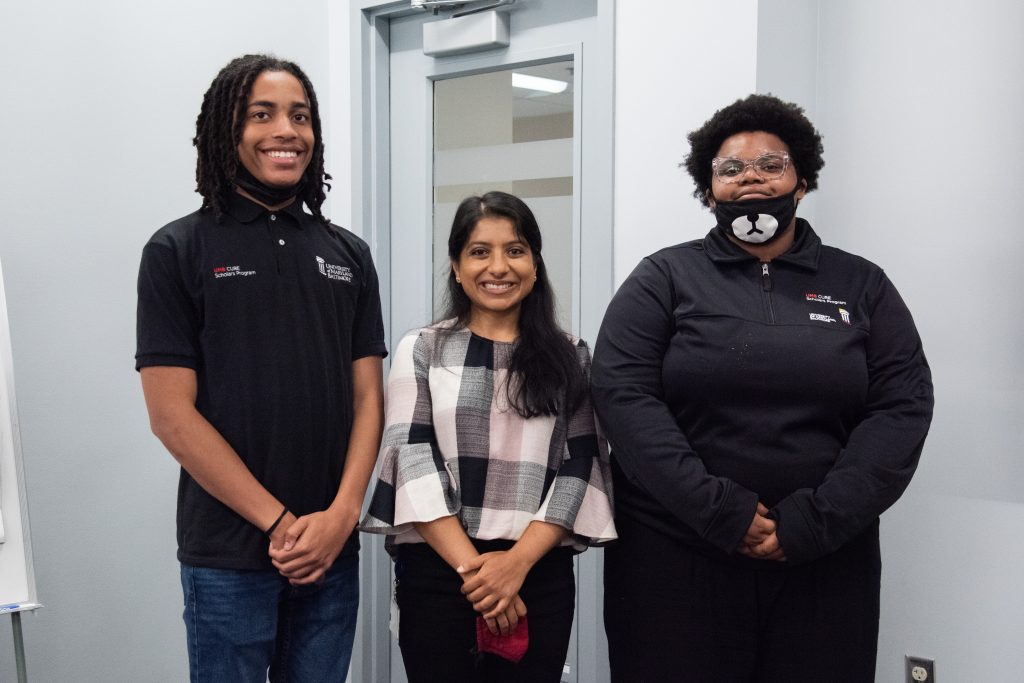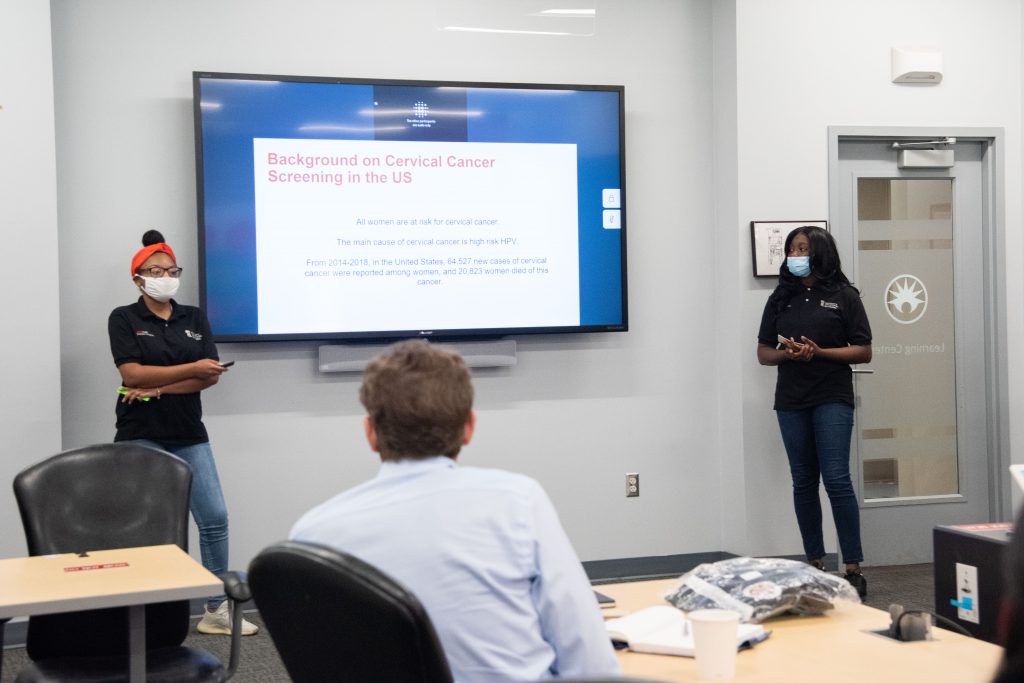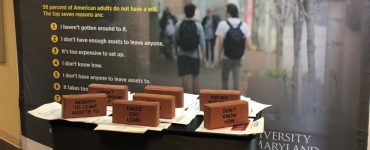The University of Maryland, Baltimore’s (UMB) CURE Scholars Program, now well into its sixth year, continues to hold true to its mission of creating sustainable and competitive mentorship, education, and work opportunities for West Baltimore youth in the fields of health care and science, technology, engineering, and math (STEM). Just this past summer, four CURE Scholars were placed in paid virtual internships with BD, a leading global medical technology company with its Integrated Diagnostic Solutions worldwide headquarters in Sparks, Md.
The four scholars were connected to this eight-week paid internship opportunity at BD through Career Navigator, which is the final leg of the CURE Scholars Program and is designed to prepare 11th- and 12th-grade students for college through mentorship, SAT prep, professional internships, and college and financial aid application support.

“We’re working with first-generation, low-income students, many of whom work as financial contributors for their families,” said Ivan Lamas-Sanchez, MA, program manager for scholar success, who is supporting many of CURE’s older students in the college early admissions application process . “While across the country many internships are still unpaid, the fact that our scholars can earn a competitive hourly wage as high schoolers while gaining this invaluable experience is essential.”
The internship had two tracks with two scholars each. The first track focused on antimicrobial resistance, infectious disease, and advanced diagnostics, with the scholars producing research that informed the rollout of a testing kit produced by BD for human papillomavirus (HPV) and cervical cancer screening. This was pivotal in a year when there was a noticeable drop in gynecology appointments due to the COVID-19 pandemic.
“I was sincerely impressed with their skill and how quickly as young students they engaged with these sophisticated concepts,” said Nikos Pavlidis, vice president of molecular diagnostics and women’s health and cancer at BD. “When they presented their research, they were confident and professional, and they did a fantastic job.”
The scholars’ research compared the health systems in the United States and Denmark to ask questions and draw findings on the differences in the systems and their approaches to health care delivery.
“I am blessed because many people don’t have opportunities like this at such a young age,” said Ayishat Yussuf, a 12th-grader at Baltimore City College who worked on the HPV and cervical cancer research track. “Many people are doing research like this when they’re much older, so having this whole experience before even graduating high school feels pretty good.”
The second internship track was in data science and centered on cybersecurity and computer-aided design (CAD), using programming code to check genome sequencing instruments to identify health issues for individuals before they emerge.
“I was so impressed all the way through that they took on every topic and really digested them and made them their own. They were able to execute every task we gave them,” said Sindhushree Raghunandan, PhD, a staff engineer at BD who mentored scholars Princaya Sanders and Jaden Buggs.
For Buggs, a 12th-grade student at Green Street Academy, the internship inspired him to learn more about CAD and pursue engineering and design in college. He said that at the beginning of the internship he felt intimidated by computer coding, but with the help of his mentors he was able to tackle the concept very quickly.
“I truly didn’t think I was going to get it on my first try,” Buggs said. “But when I did it by myself, I was so excited that I got it right. I told my parents about it, and they were proud of me, too, which just hyped me up about my future in engineering.”
Supporting Families
Another key component to UMB CURE in light of the pandemic has been supporting scholars’ families, including some at risk of homelessness or food insecurity, by helping with utility bill payment, rental assistance, food deliveries, or eviction prevention efforts. The Office of Philanthropy and wider UMB community helped support these initiatives earlier in the pandemic as the program welcomed its sixth cohort. Lamas-Sanchez said CURE Scholars interns earning a living wage throughout the summer was critical to bolstering family support during such a difficult time.
“Since we worked with such great staff at BD, I am already excited for next year,” Lamas-Sanchez said. “Overall, it was very successful. The students definitely took a lot away from it. Especially for students applying to colleges with a STEM or health care interest, interning at a Fortune 500 company like BD is an amazing experience.”

Gia Grier McGinnis, DrPH, MS, executive director of UMB CURE, said, “The sky is the limit for our scholars, thanks to the public-private partnerships we have been able to forge that continue to provide CURE with the network necessary for its success. We are grateful to BD for charting the path forward for our senior cohort of scholars, showing them what is possible with careful — and caring — work.”
As UMB CURE continues to expand and its younger cohorts advance in their high school careers, the program is eager to partner with other organizations in the STEM and health care fields. If you are part of a lab or organization and would like to explore partnering with UMB CURE to host scholars, please contact the program’s philanthropy officer, John Palinski, MPA, at jpalinski@umaryland.edu.
Contributions also are sought to fund and support paid internships and college scholarships that can help keep the CURE Scholars’ pursuit of higher education affordable. To explore contribution options toward these efforts, please contact Palinski at the email address above.




